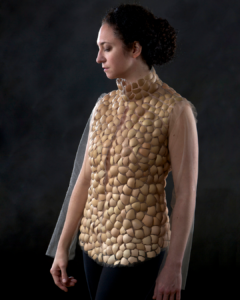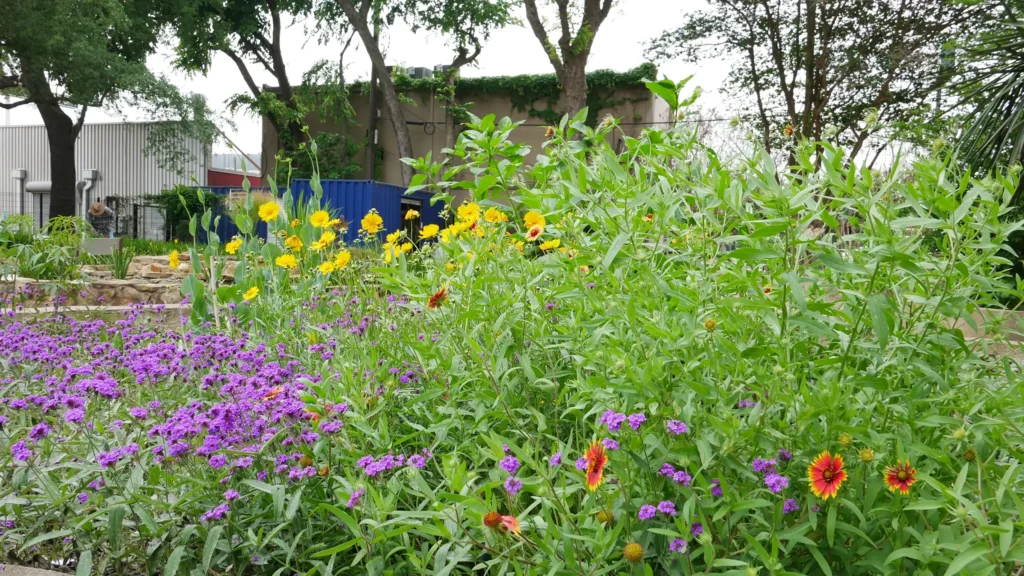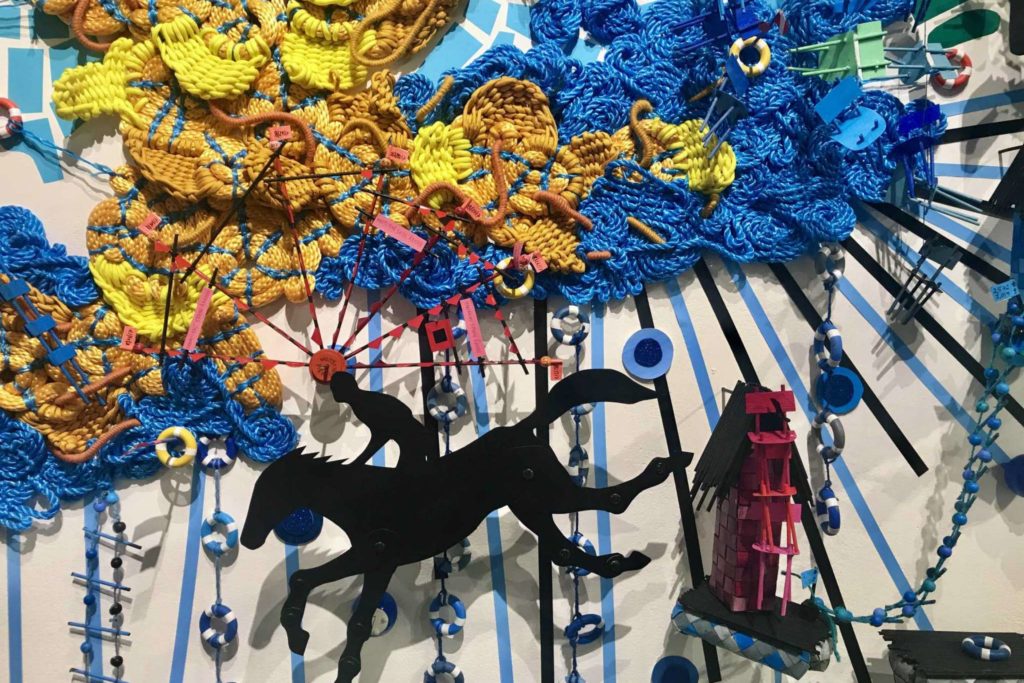
Walking into “The Water Line,” a visitor could think several things: 1) A carnival has crashed into the walls of the Houston Center for Contemporary Craft; 2) A monumental motherboard has exploded and flown apart; or 3) What the X#!?
Contemporary basket weaver Nathalie Miebach’s show can stir that kind of chaos in your head. This is appropriate given her subject matter. Miebach translates the scientific data of ecology, climate change and meteorology into large-scale installations, tabletop sculptures and small, intriguing watercolor musical scores whose abstract forms are read as notes during live performances.
“The Water Line” explores the numbers behind the 2017 Hurricanes Harvey, Maria and Irma, three of the five most catastrophic hurricanes in U.S. history.
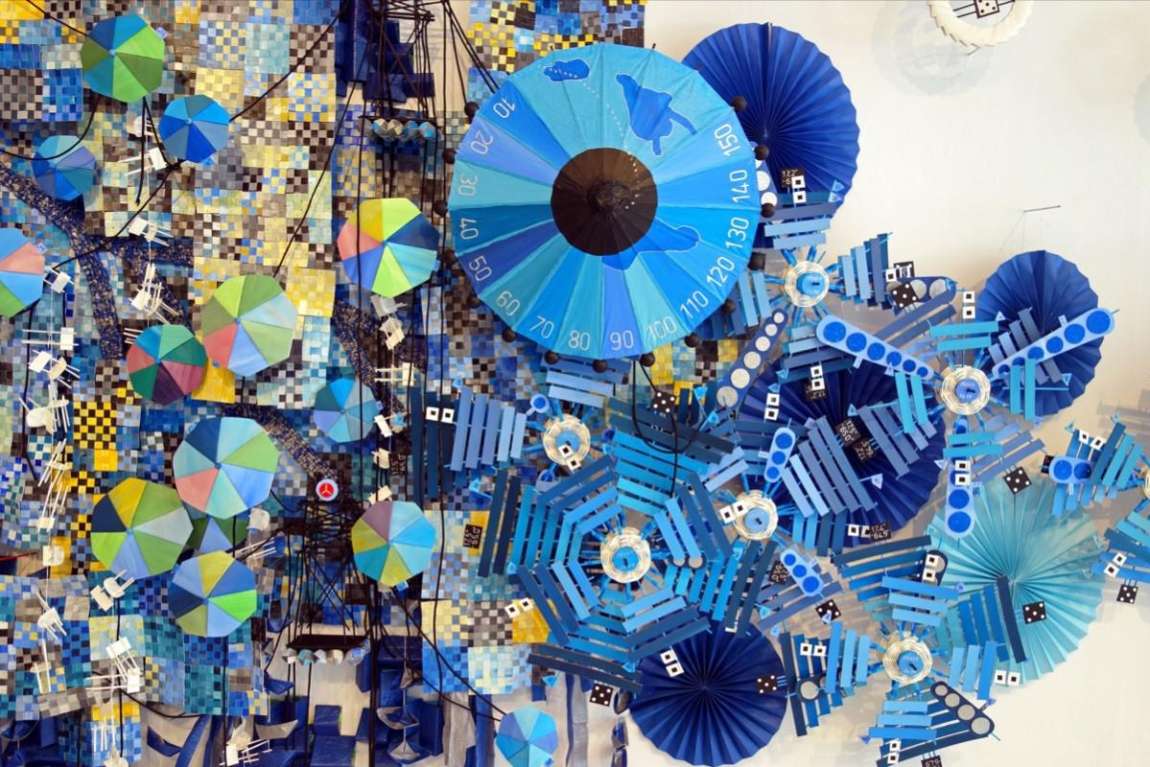
Miebach’s primary material is data, a difficult thing to manifest physically. Her mastery of craft asserts itself in myriad small objects, such as boats, boxes, chairs and other human-made goods formed with woven paper. She also layers on wood pieces, plastic trinkets and cut paper that can represent streets, neighborhoods, power grids, waves.
Curator Kathryn Hall describes Miebach’s art as a “nuanced approach to data visualization.”
The tour de force is “The Burden of Every Drop,” which depicts a map of devastated Puerto Rico as an unraveling quilt. Stretching nearly 17 feet long, the piece is punctuated with little tossed chairs and blue and green disks that remind me of little cocktail parasols. Fibers dangle from it like jellyfish tentacles tangled up in little paper boats. These elements and others symbolize nuggets of geographically specific weather and destruction data: wind speeds or water levels, say, or the number and locations of downed power lines.
The traumatic narratives of Hurricane Harvey find form in “Riding the Deluge,” a spindly tabletop sculpture that’s equal parts carousel and offshore drilling platform. Its parts depict data from Houston’s bayous and reservoirs, as well as tweets sent by people desperate to be rescued.
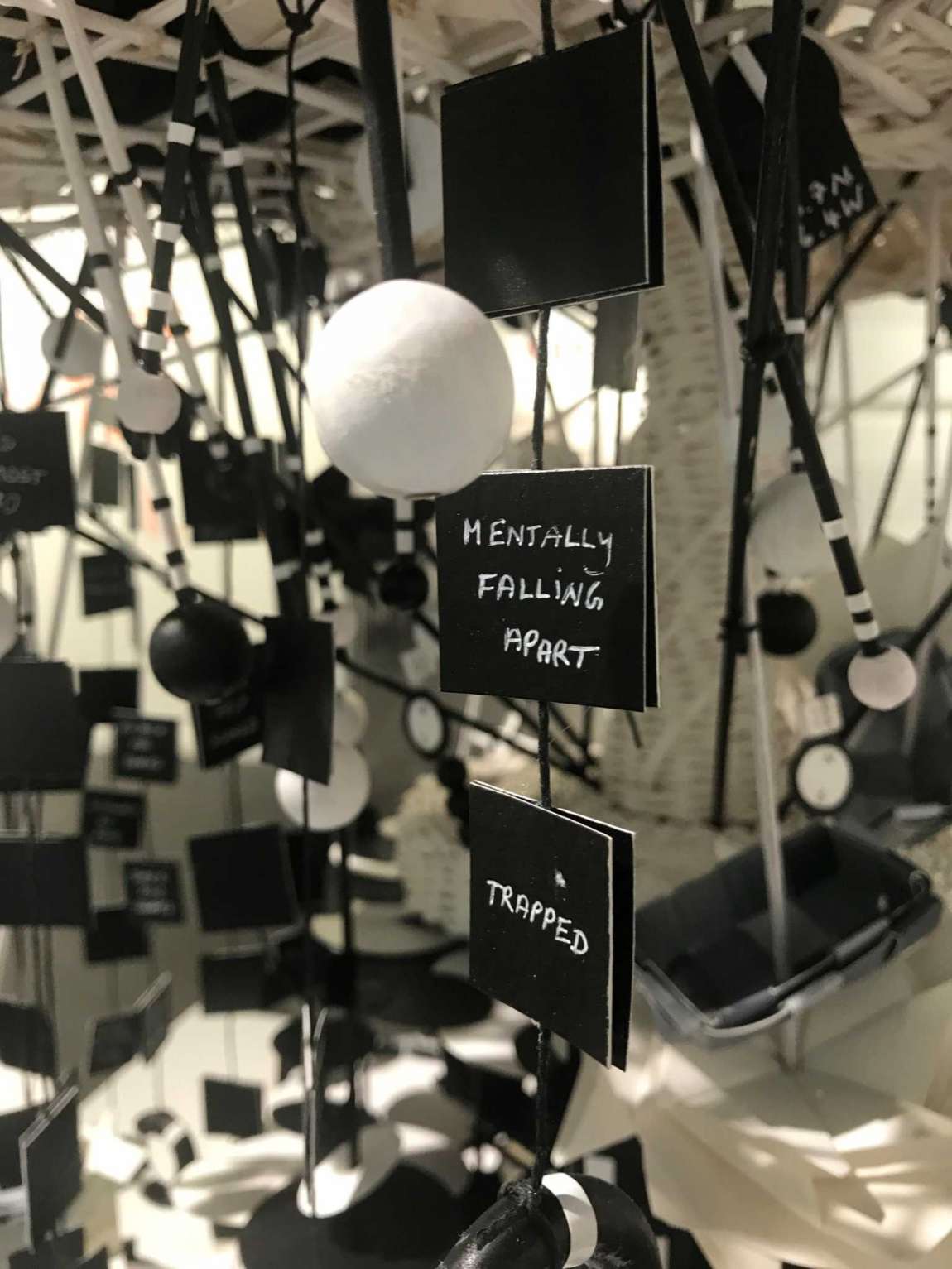
The triptych “The Madness of a Drowning Gambler” is both fun and confounding. It evokes a carnival atmosphere gone topsy-turvy and a game in which racehorses are running amok in floodwaters. Familiar neighborhoods are identified but not geographically correct, as if the whole landscape has spun out of control. It has something to do with what Miebach calls the “existential dilemma” of dealing with climate change: We contribute to flooding by building over flood plains, then become the victims.
Deciphering all the data the artist has corralled seems futile, too. Which is OK, because art ultimately is not science: Its purpose is to make us feel something, and maybe act on it. You don’t have to ponder “The Burden of Every Drop” long to understand the enormity of the issues expressed: We have made a colossal mess of the world.

Miebach’s jaunty colors signal that “The Water Line” isn’t meant to be totally bleak. Hall, the curator, thinks of it as a call to action. “By portraying the different emergency-response-and-recovery narratives of three recent major hurricanes, Miebach questions how we can adapt to the increased precipitation in our own backyards,” she writes. “She encourages us to think collectively about what this means for our future.”
“The Water Line” is on view through Jan. 5 at Houston Center for Contemporary Craft, 4848 Main; free; 713-528-4848, crafthouston.org.
molly.glentzer@chron.com
